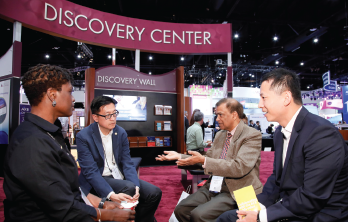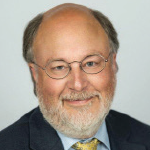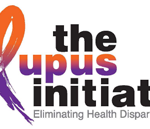Last month I expressed my thoughts on the valuable and varied opportunities the ACR offers for professional and personal growth. Such engagement not only provides an opportunity to connect with your rheumatology colleagues, but also to have a positive impact on patients, supporters and all consumers of healthcare. ACR and ARHP members from every aspect of the rheumatology spectrum can collaborate to implement ambitious projects that improve access to providers who are knowledgeable about rheumatology, increase diverse participation in clinical trials and increase the availability of self-management resources for people with rheumatic disease. In collaboration, they also highlight rheumatology’s relevance to the healthcare community and the public at large, including in such areas as the national movement toward health equity. We are able to accomplish this by working with the ACR’s Collaborative Initiatives Department, known as COIN, and its extensive network of collaborators, including academic institutions, patient groups and other private, public and nonprofit entities.
Consider getting involved with COIN on one of its existing projects or provide input as it selects its next projects.
Background
In 2009, the ACR was awarded a one-year cooperative agreement with the U.S. Department of Health and Human Services, Office of Minority Health (OMH) to develop provider-focused education resources aimed at reducing health disparities and improving outcomes in people with lupus. The ACR set up The Lupus Initiative (TLI), a project that taps members to achieve this objective. TLI was originally envisioned as a short-term, standalone program consisting of a single set of resources. However, it has endured and remains an active, vibrant ACR program. You can learn more about TLI and access the varied, multimedia resources at lupusinitiative.org.
It also became evident to the ACR leadership and funders that many members were motivated to get involved in community-based activities with the potential to improve the health of people with rheumatic diseases, and were eager to develop and test innovative solutions for complex rheumatology care problems. Thus, in 2014, the ACR established the Collaborative Initiatives (COIN) department.
TLI now sits within the COIN department. The ACR has been awarded continuous funding from multiple sources to continue COIN’s work—work that has changed and evolved and now involves projects beyond lupus and beyond U.S. borders. Two aspects of this program particularly stand out for me. Innovation remains a hallmark, and members remain the driving force behind the work.

COIN Senior Director Sheryl McCalla (left) and COIN Working Group Chair S. Sam Lim, MD (2nd from left), with faculty from UCLA, discuss an article on lupus mortality, which was published in Annals of Internal Medicine.
Earlier this year, the ACR was honored as one of five recipients of the 2018 American Society of Association Executives (ASAE) Innovation Grants Program award. In essence, by making the monetary award, ASAE recognized COIN for its innovative approach to collaboratively building programs that work to improve health in everyday life.
The overarching strategic direction of the department is guided by a member-led working group. Individual projects are conceived and implemented by members. Members working with COIN may lead in-depth projects, such as designing, evaluating and piloting novel models to increase knowledge about rheumatic conditions among primary care providers in rural communities, or they may engage in activities with short time commitments, such as editing educational content or serving as a featured expert guest on a Simple Tasks Twitter session, known as #RheumChat.
Many members [are] motivated to get involved in community-based activities with the potential to improve the health of people with rheumatic diseases.
Under Construction
Against the backdrop of an organization that is 84 years old, a four-year-old department is in its infancy. This presents a rare opportunity for members to pioneer programs to expand rheumatology’s goodwill footprint around the world.
For members, the ACR ensures that all of the work COIN does—programs toward health equity, creating models to increase rheumatology-related capacity in places of need, building bridges with local and national patient organizations—is done on your behalf. I’d like to thank Sam Lim, MD, MPH, and ACR Sr. Director Sheryl McCalla for their continued leadership on COIN.
I encourage all of us to take part in shaping COIN’s next steps. How would you like to connect to the community around you? What needs do you see that the ACR may be able to address through COIN?
AARP founder Percy Andrus, PhD, is quoted as having said, “The challenge—to live up to our better selves, to believe well of our fellow men and, perhaps, by doing so to help create the good. To experiment, to explore, to change, and to grow.” In each of the next four issues of The Rheumatologist, we will spotlight a COIN activity through which your membership “creates the good.”
Please fill out this short survey to help inform COIN as it shapes the direction of future projects. If you have a specific interest or idea, contact the Collaborative Initiatives department.
 David I. Daikh, MD, PhD, is the 81st president of the ACR. Dr. Daikh serves as the director of the Rheumatology Fellowship Training Program at the University of California San Francisco and as chief of the Rheumatology Division at the SFVA Medical Center, where he directs the Rheumatology Clinic.
David I. Daikh, MD, PhD, is the 81st president of the ACR. Dr. Daikh serves as the director of the Rheumatology Fellowship Training Program at the University of California San Francisco and as chief of the Rheumatology Division at the SFVA Medical Center, where he directs the Rheumatology Clinic.

